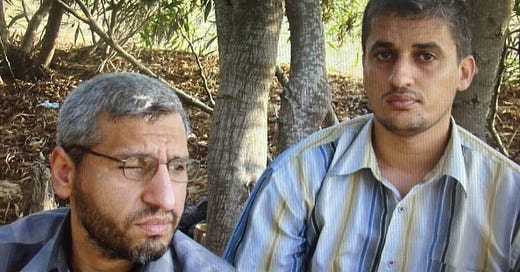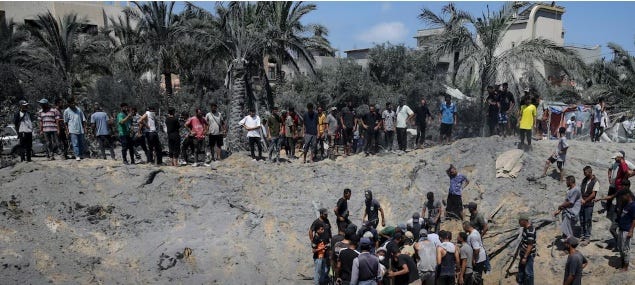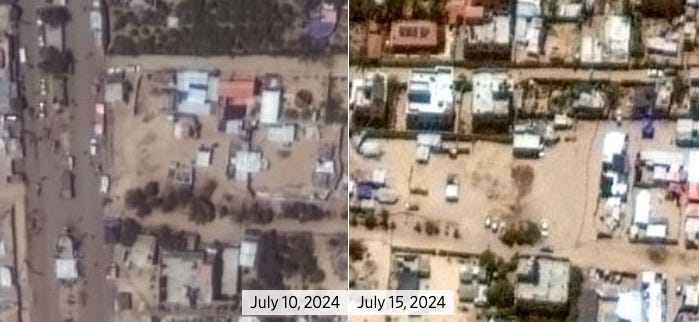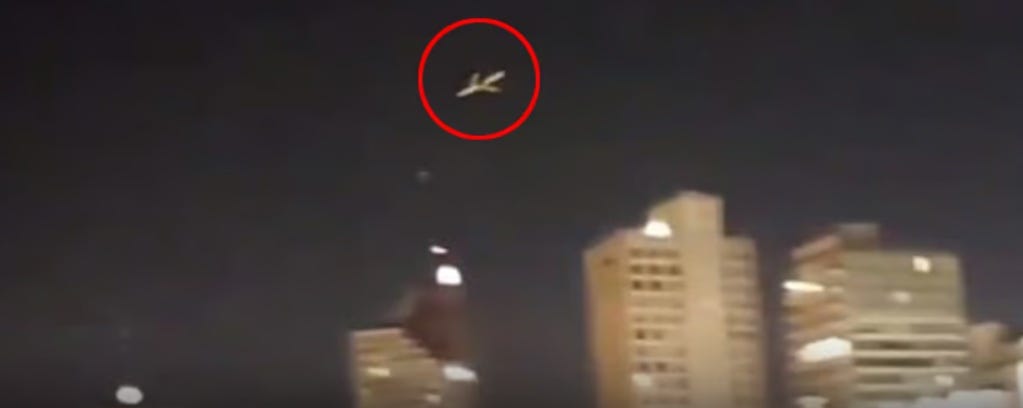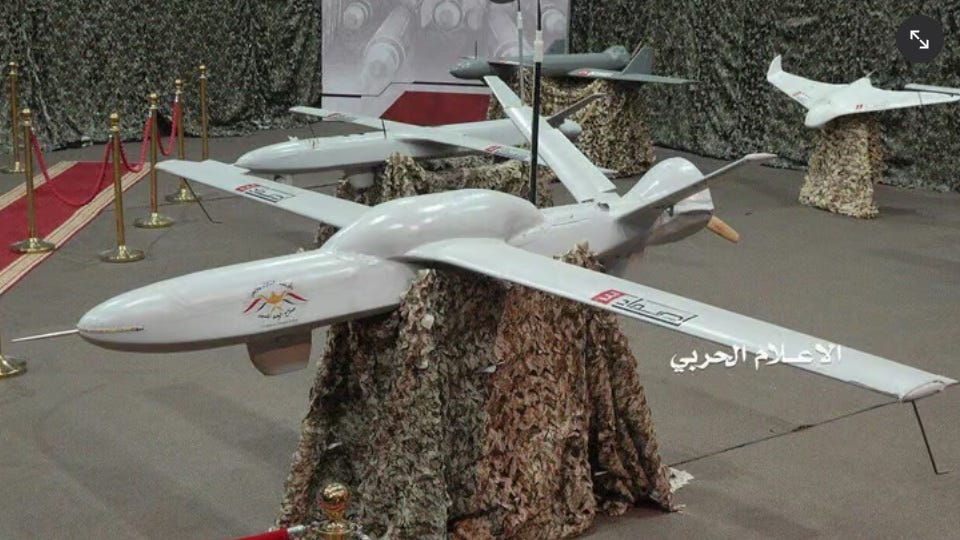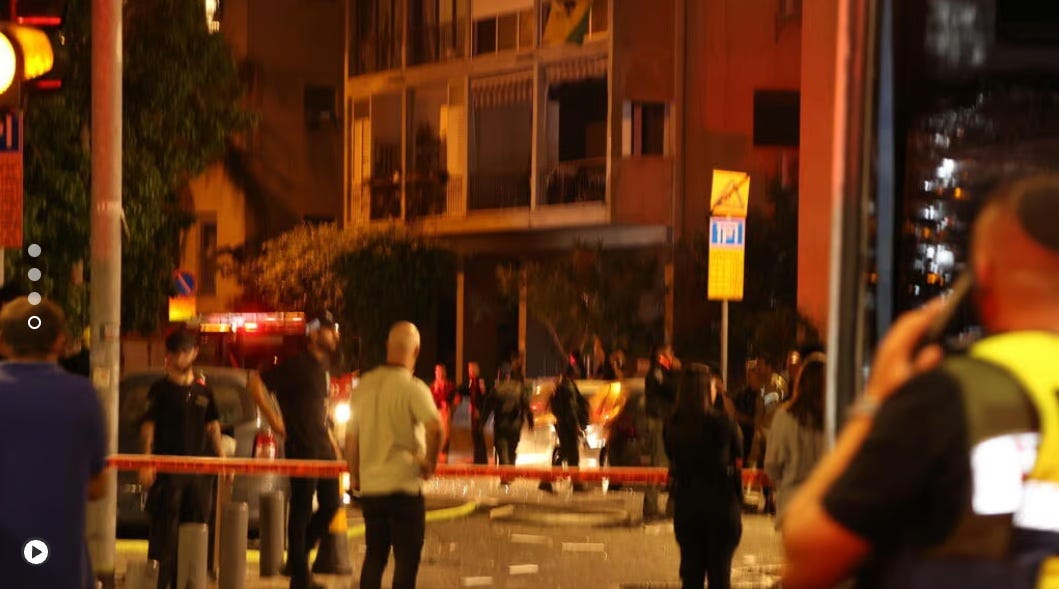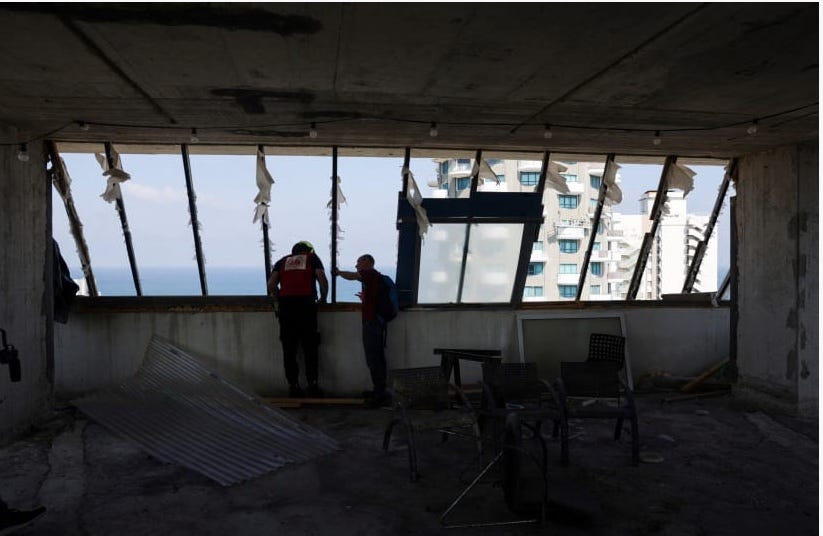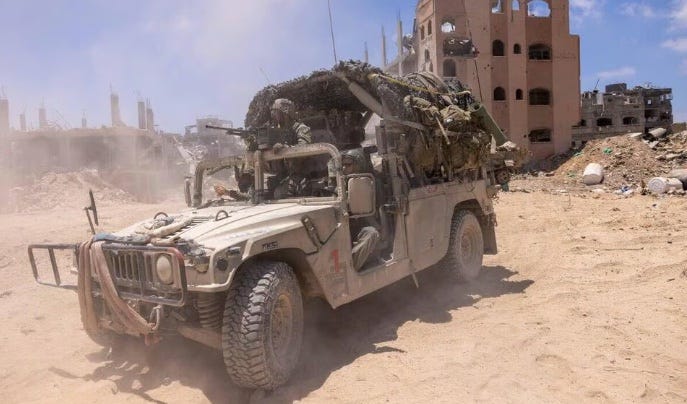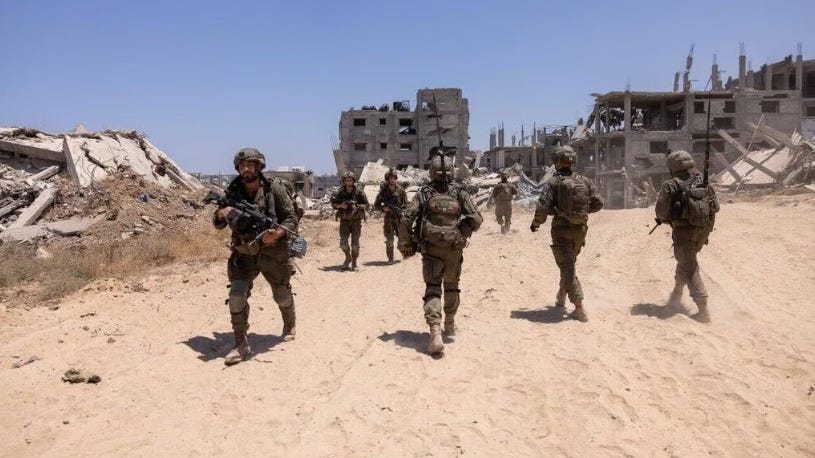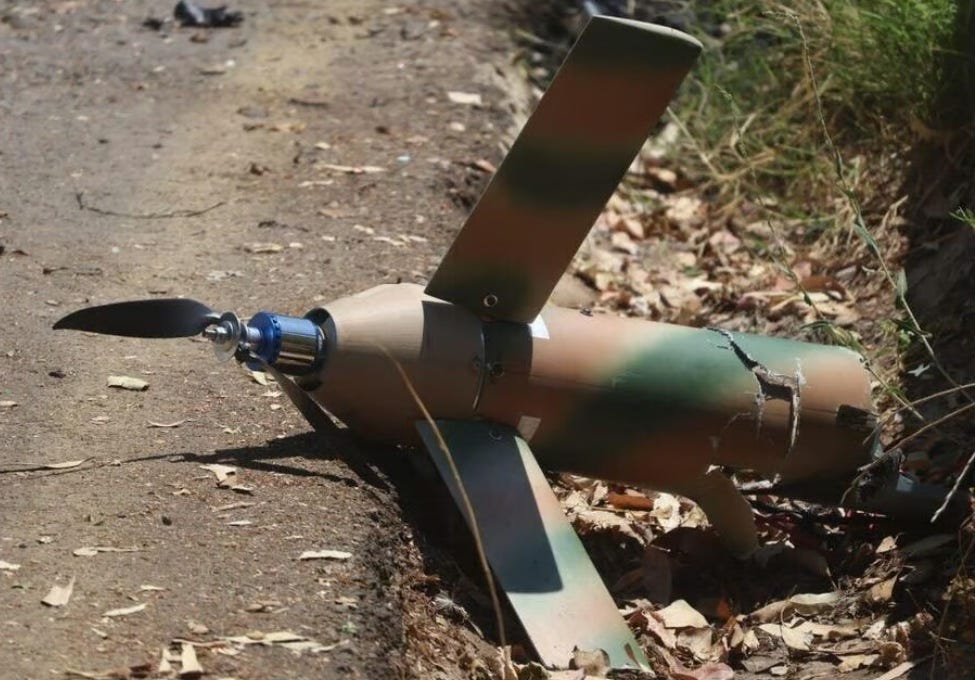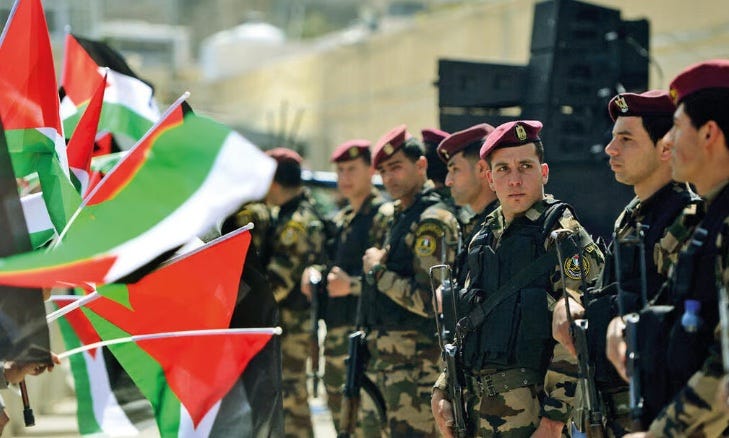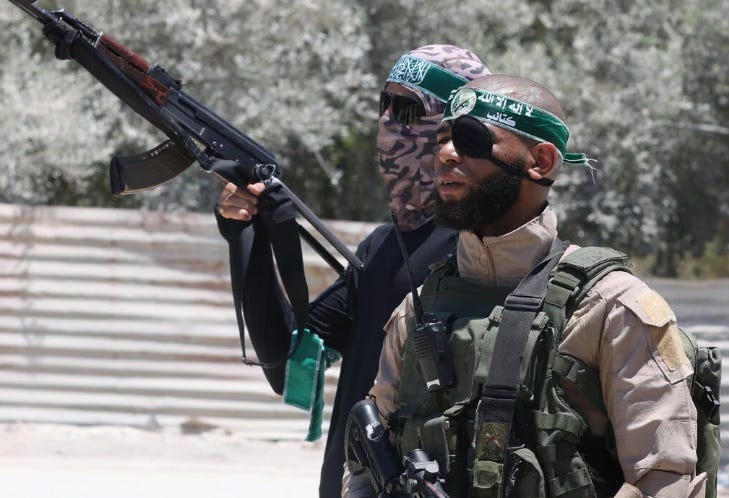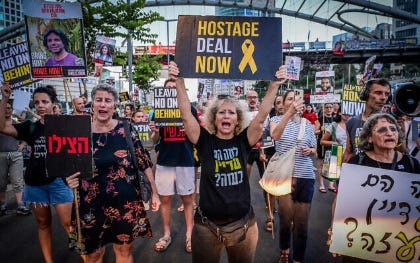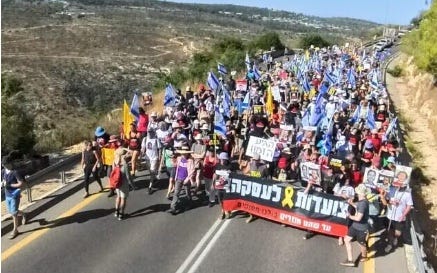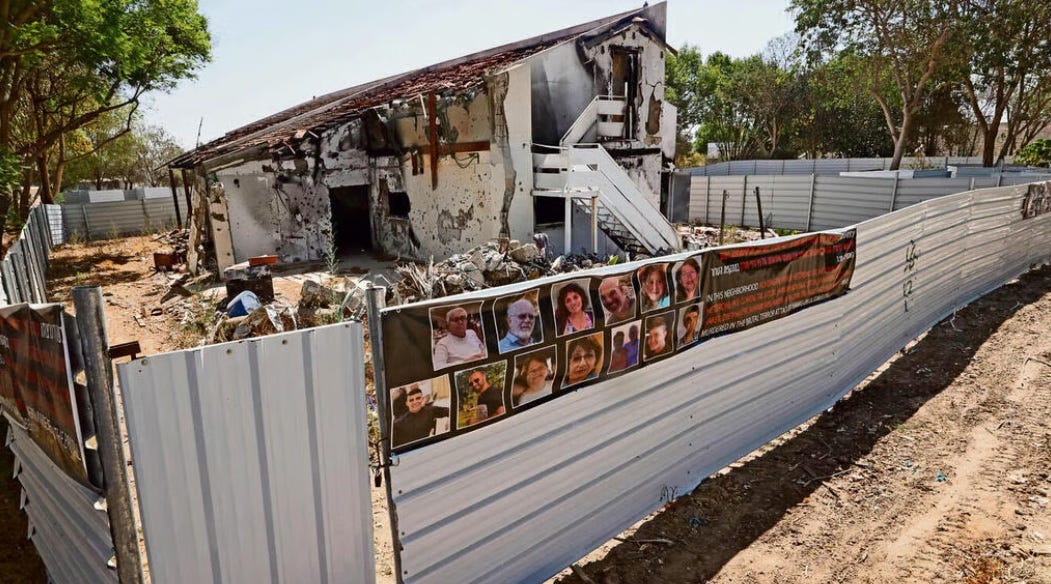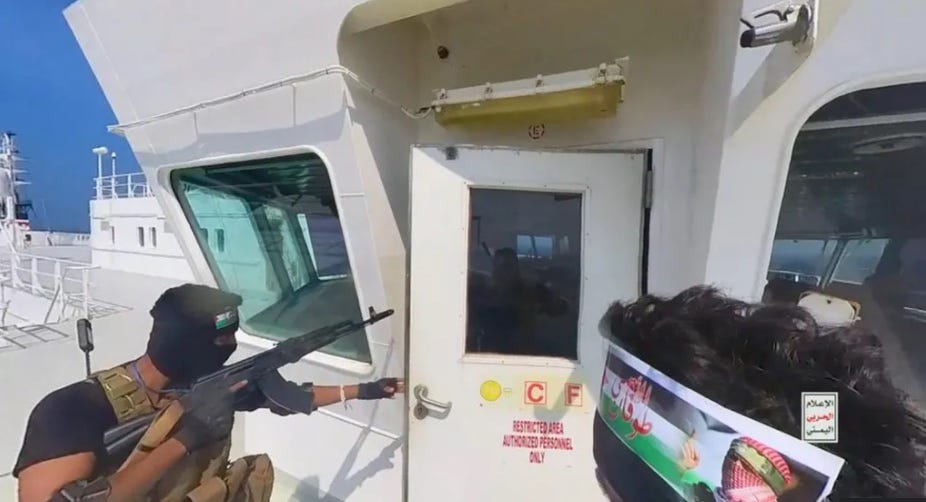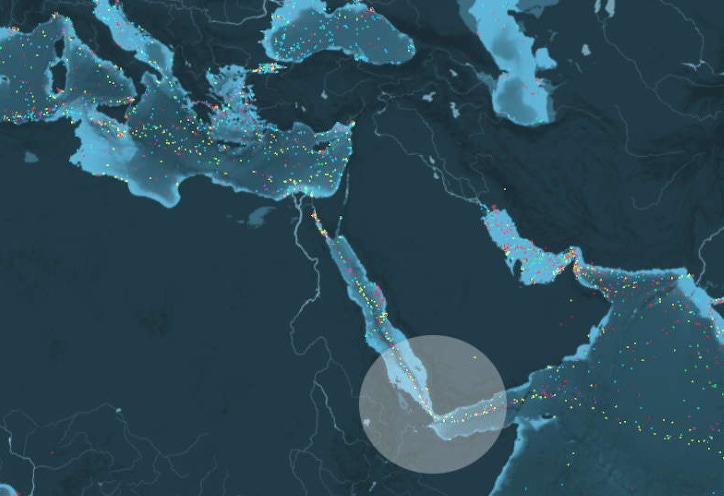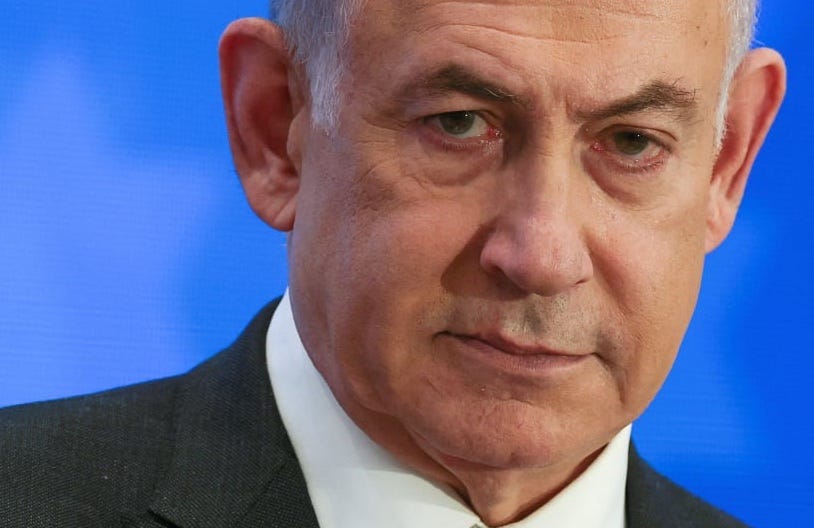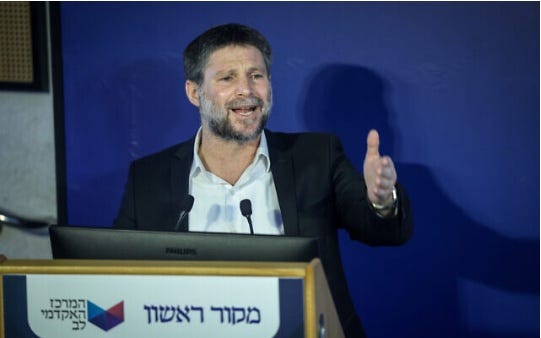UPDATE: July 19, 2024
Two major developments necessitated and update.
Gaza
Muhammed Deif (left) Rafa Salama (right)
The IAF struck at Hamas’ number two leader while he was in Gaza city. The Israel Defense Forces have yet to definitively declared Muhammed Deif, the Chief-of Staff of the Hamas military, dead. Deif was, according to military experts, the mastermind of the Oct 7 massacre on the Israeli settlements along the Gaza border. And the brains behind countless Hamas attacks on Israel.
IDF Spokesman Adm. (ret.) Daniel Hagari said on Thursday that the signs are growing stronger that Deif was killed last Saturday. The IDF did confirm that Deif’s second in command, Khan Yunis brigade commander Rafa Salama was killed when the Israel air force dropped 8 tons of explosives on the spot where Salama and Deif were sitting.
Crater where villa once stood
Ehud Yaari, Channel 12TV’s veteran Arab affairs correspondent, said that the almost certain death of Deif would weaken Hamas leader Sinwar considerably. Yaari said that Deif was essentially Sinwar’s sponsor, the one who recommended Sinwar for the job of Hamas’ political leader. Without Deif’s backing, Sinwar’s position as leader of Hamas in Gaza was no longer assured.
Also, analysts say that without Deif, who was considered a brilliant military strategist, Hamas would have a hard time rebuilding their army. Sources say that it was Deif who organized the army and broke up the forces into 24 battalions, arranged for weapons, rockets and training.
Most experts say that the odds of Deif having survived the attack were slim. A ten-foot deep crater was caused by the blast, sending up a plume of smoke a hundred feet high topped by a mushroom cloud
The attack took out the villa, in white on left of the picture, and a brown smudge on the right after the attack, showing where Deif was sitting just before the attack.
Before and after bombs dropped on Deif
Reportedly, Deif, who has survived at least six assassination attempts, had emerged from the tunnel and was sitting in the garden of the villa of his second in command Salama when the IDF bombed the site. The villa was in a fenced off Hamas compound located inside what was supposed to be a safe area for refugees. Media reports that scores were killed in the attack.
The IDF said most of those killed were Hamas terrorists.
The IDF reported that Deif, who was suffering from lung and other injuries caused by previous assassination attempts, needed to come up from the fetid tunnels from time to time because of breathing problems. Salamah was also frequently seen in one or another of his homes when he too came out of the tunnels.
Hamas is investigating how the IDF knew that Deif was out of the tunnel and sitting in Salama’s garden. The death of Deif is expected to hasten Hamas’ agreement to a cease-fire.
Channel 12TV aired an audio clip recorded by Israeli intelligence that captured Gaza residents speaking on the telephone. One said it was good Deif was dead and hoped that Sinwar was next so that the war could end.
According to military sources, the IDF has killed over half of the Hamas commanders and more than half of their fighters, as well as capturing rockets, destroying weapons manufacturing plants, and miles of underground tunnels.
However, the 120 hostages remain captive by Hamas in Gaza. Negotiations were to have resumed this week however PM Netanyahu threw in some last minute changes that forced a postponement.
Tel Aviv
Houthi drone in the sky over Tel Aviv shortly before explosion
The other big event that prompted this update was a Houthi “Jaffa” Simad-3 long-range UAV, a veteran, non-stealth, armed drone, upgraded by Iran, that exploded in Tel Aviv at 03:15 Friday morning killing one 50-year old man and wounding ten others. The powerful explosion, that shattered windows and sprayed glass, was heard for miles. There was no warning siren that the UAV was approaching Tel Aviv.”
The Simad 3 is 12-feet long, with a wingspan of 15 feet and has a range of about 1700 kilometers (@ 1,000 miles).
Iranian enhanced Houthi Samad 3 “Jaffa” drone
Some reports that the man killed was in his apartment located on the roof of the building when the drone exploded above him killing him with razor sharp shrapnel. Ten other Israelis were also wounded by shrapnel, four seriously.
The building is on the corner of Ben Yehuda and Shalom Alecheim streets, not far from the US consulate, once the US Embassy, now in Jerusalem. According to Ynetnews the assessment is that the drone was aimed at the US consulate. “It did not fall there by chance,” said one source.
The drone was apparently launched by Iranian-backed Houthi terrorists in Yemen and aimed at Israel. Reportedly, US forces in the Red Sea spotted the launch of a ballistic missile and four drones from Yemen. The US forces downed the ballistic missile and three out of four armed drones. One armed drone got through.
According to Ron Ben Yishai, Ynetnews’ veteran military correspondent, the UAV that exploded in Tel Aviv was detected, but due to an error by an Air Force controller, it was not intercepted. Ben Yishai wrote that Israel is investigating whether this is a combined operation by the Houthis and the Iran-sponsored Shiite militias in Iraq.
First responders in street outside damaged TA building
According to Ben Yishai, “…large explosive UAVs are an ideal tool in the hands of terrorist armies and guerrilla organizations, as well as in the hands of regular armies. The reason is that they can reach a distance of thousands of kilometers in an indirect route and at a very low altitude, which makes it very difficult to detect them.
“Their relatively small size also makes it difficult to identify them as a hostile target. The bottom line is that in intercepting drones, the critical step is detection and then identification.
“The Air Force's initial investigation reveals that the UAV that exploded in Tel Aviv, and which killed a 50-year-old man and injured 10, was actually discovered while on its way to Israel, but due to human error by an operator in the Air Force's long-term detection system, it was not identified as a hostile target.
“Therefore, fighter jets were not sent to intercept the drone far from Israel's borders, as was the case later that night, when a UAV was intercepted from the east. This is also the reason that no warning was given to the residents of Tel Aviv.”
Ben Yishai also wrote that, even though one UAV got through due to human error, “there have been more than 200 UAVs that the Air Force planes and Iron Dome batteries were able to discover and intercept, whether they were launched from Yemen or Lebanon. “
In this case, Ben Yishai wrote that the Air Force warning and control system spotted the UAV on several sections of its route, “but the person on duty watching the screen estimated for some reason that it is not a hostile target, probably because the UAV was flying in a direction that he thought was not aimed at the State of Israel or endangering it. That is why he did not launch the planes that could have intercepted the UAV in the air, far from Israel's border, nor did he give a warning.
“…the Houthis can send a UAV from Yemen that will pass over the territory of Egypt at a low altitude, then turn north and fly literally meters above the waves of the Mediterranean Sea then rise and hit Tel Aviv.”
Tel Aviv mayor Ron Huldai raised the alert level in Tel Aviv.
Fire and Rescue Service officers inspect damaged building
Houthi militants issued a statement that they’d launched the drone and took credit for the strike on Tel Aviv. Yahya Sarie, the Houthi military spokesman, said that Tel Aviv has become "unsafe" because the Houthis now have new drones that are capable of evading Israeli defenses.
Ben Yishai says that the US Central Command (CENTCOM) are tasked with intercepting drones, cruise missiles and ballistic missiles as soon as they are launched from Yemen towards Israel. The American ships of the Fifth Fleet have been successfully doing this job for nine months.
The problem is, according to Ben Yishai, that the USA does not employ offensive tactics against the Houthis, like attacking the missiles at their bases before they are launched. This is, writes Ben Yishai, because the US government fears a regional war that might flare up if Yemen or the Shiite militants in Iraq, who are cooperating with the Houthis, were attacked. And because the USA needs to keep American military forces in Iraq. An attack there might be enough reason to expel the US forces.
Ben Yishai thinks a new arrangement should be reached that allows Israel to attack targets in Iraq and Yemen that the USA is reluctant to do for their own strategic reasons. This would allow Israel to bo on the offensive, rather than wait for missiles and drones to approach close to Israel as is now the case.
According to the Times of Israel, Defense Minister Yoav Gallant, meanwhile, said Israel would respond.
“The defense establishment is working to immediately strengthen all defense systems, and will settle the score with anyone who harms the State of Israel or directs terror against it,” he said in remarks provided by his office following an assessment held with IDF officials on the Houthi drone attack.
According to Ynetnews, the former director general of the Ministry of Foreign Affairs, Ronan Levi Maoz, now a researcher at the Meshgav Institute for National Security and Strategy, said: "The root problem is Iran and that is where treatment should be focused. The time has come for the world and Israel to charge it a price for its proxy activities and the distribution of UAVs. The Houthis also have assets, and we need to start leaving them without them. The required change in Israel's political and military perception must be reflected in other arenas as well. Anyone who harms us Must pay a price, these are the rules of the game in the Middle East."
___________________________________________________________________________
War
IDF Jeep in Gaza City
Israel is nine-months and counting in the war in Gaza. So far 328 IDF soldiers have been killed since the army went into Gaza on Oct 27th. This followed the Hamas terrorist organizations invasion of Israel on Oct 7 by approximately 3000 terrorists, who brutally massacred, raped and burned 1200 Israelis and when 251 taken hostage. Israel went into Gaza on Oct 27th to insure that such a massacre could not happen again.
According to Yoav Gallant, Israel’s Minister of Defense, the IDF has killed 60 percent of Hamas’ fighters in Gaza, and destroyed 24 Hamas battalions, essentially dismantling the Hamas military infrastructure. Still, Hamas leader Sinwar has not been caught, nor have the 120 remaining hostages been freed.
The goals of the war are still slightly out of reach. Hamas still has 40 percent of the fighting forces left, scattered, and now behaving like guerrillas not as organized military units. But they still exist and cause damage. And could regroup.
Israel’s leaders have been criticized for not having a ‘day after’ plan for the war. Who would take over and run Gaza and replace Hamas? The international community has not been quick to volunteer.
The IDF has destroyed scores of kilometers of tunnels, but barely scratched the surface of the 500 odd kilometers of tunnels Hamas reportedly built. Israel has Taken over the Philadelphia Alley that runs along the border with Egypt. Underground are countless tunnels used by smugglers and Hamas to bring in goods and weapons. Israel wants to insert a wall into the ground to block off the tunnels. Egypt is not happy with the idea.
According to Ynetnews, On Wednesday July 10th, Defense Minister Yoav Gallant told White House Middle East coordinator Brett McGurk last night that Israel could withdraw troops from the Philadelphi corridor as part of a hostage deal, Gallant’s office says.
“A solution is required that will stop smuggling attempts and will cut off potential supply for Hamas, and will enable the withdrawal of IDF troops from the corridor, as part of a framework for the release of hostages,” he said.
He also told McGurk that Israel wants to see the Rafah Crossing reopened, but “will not tolerate the return of Hamas to the area.”
Gallant thanked McGurk along with the Biden administration “for his personal involvement and leadership on the hostage issue,” says his office.
Israeli troops are still highly motivated. Some soldiers have been in Gaza for the entire nine-months. Others were released and called back again. And still they fight with zeal.
Military analysts say the IDF is ready to call a halt to the fighting, reorganize the troops, and ready them for an assault on Hezbollah in the north. A prospect that is viewed with concern by many observers. According to the IDF, Hezbollah has a well-supplied and disciplined army of 20,000-25,000 full-time fighters with tens of thousands in reserves. And 150,000 missiles and mortars and drones, which could kill thousands of Israelis. And Hezbollah has countless underground tunnels capable of allowing troop carriers to move about easily.
The war in the north would be difficult. But, say the experts, unless there’s a cease-fire with Hamas, that war is inevitable, but according to.the Jerusalem Post military analyst Yonah Jeremy Bob, not immediate.
Bob opined that the war is not going to happen soon, but would happen eventually. And that Israel would win such a contest but at a high cost. Hezbollah.
According to the Jerusalem Post, Hezbollah could potentially manage 8,000 rockets per day at the start of the war. Then 1,500-3,000 rockets per day could be maintained for a week or weeks. Israel could shoot down 90% (the percentage of rockets Israel hit that were launched from Gaza) of 8,000 rockets. That would be 3,000 rockets. But 800 (out of 8,000) or 300 (out of 3,000) would still be getting through in a single day to places like Tel Aviv, Haifa, and Ben-Gurion Airport.
However, Hezbollah has said many times that they’d stop firing on Israel should a cease-fire be reached with Hamas.
But meanwhile, they are sending barrage after barrage of missiles and drones at the north of Israel causing 80,000 residents of the north to evacuate and live in temporary housing around the country. A temporary condition that has gone on for nine-months with no end in sight.
According to Channel 12TV, 143,000 Israelis have been evacuated from their homes since the war began. 11,000 from the north have returned to their homes. 5,200 from the south. 5700 from the Gaza communities are still housed in hotels. One in five say they are not ready to return.
And then there’s the possibility of an expanded war, Hezbollah in the north, Hamas in the south, Islamic militants in the West Bank, the Houthis in Yemen, Iran joining in backed by Russia, Turkey, North Korea and probably China.
According to Ynetnews, IDF Deputy Chief of Staff Major General Amir Baram warned that Iran was closer than ever to obtaining nuclear arms.
"The nuclear situation in Iran is like a car with all the parts ready - now they just need to be assembled," he told the Knesset's Foreign Affairs and Defense Committee earlier this week. "We must be able to fight on two fronts simultaneously and understand that these will be long wars. We might face repeated and direct confrontations with Iran.”
As one pundit said, “Good it ain’t.”
Gaza
IDF soldiers in the Shejaiya neighborhood of Gaza City
On Thursday July 11th, The Israel Defense Forces say that a barrage of five rockets fired at southern Israel from the Rafah area was intercepted.
Earlier, rocket warning sirens had sounded in the communities of Holit, Avshalom, Yevul, Dekel, Sdeh Avraham, Yated and Kerem Shalom.
IDF forces have returned to Gaza City for the first time in six-months after fighting and subduing the Hamas forces there at the outbreak of the war in late October.
The conditions on the ground are difficult. The troops are in full battle gear while the temperatures hover in the mid to high 30’s centigrade (90-100 degrees Fahrenheit).
Reportedly, Hamas fighters slip around the neighborhood at night, sneaking through the tunnels and finding new positions to fire at the Israeli troops.
Booby-trapped buildings and tunnels are a favorite Hamas ploy. As are snipers in buildings picking off IDF troops. Hamas terrorists also pop up from the tunnels with missile launchers and fire at the Israeli Gaza border communities. All in all, said one observer, there is some resemblance to the American war in Vietnam.
On Wednesday the IDF told over two hundred thousand residents of Gaza City to move south so as to avoid being caught in any battles.
In Israel, most of the residents of the Gaza Envelope have not returned to their homes. Nearly 60,000 are still in towns and cities in the center of the country.
On Thursday, according to Ynetnews, the IDF attacked the UNRWA headquarters in Gaza where they found and killed terrorist Hassan Abu Kuayk, a senior member of the internal security apparatus of Hamas. The IDF also took out Nassar Mahana, a Hamas military intelligence team leader. The IDF also found explosive drones, explosives, grenades, sniper rifles, mortar bombs, rockets, RPGs and computers. A number of tunnels were also destroyed.
Forces surrounded the compound with armor and conducted its raid after military intelligence indicated hundreds of Hamas terrorists and senior commanders were using the area to reorganize after troops withdrew last January
Israel reported that over 300 aid trucks have entered Gaza. And the USA has reported that they will dismantle the pier built off the coast of Gaza, meant to deliver aid, because the pier could not withstand the stormy seas and kept coming detached from the shore.
North
Unexploded Armed drone that landed in Israel
On Thursday July 11th, a drone from Lebanon struck the western Galilee Kibbutz Kabri. A resident was critically injured.
Car of Noa and Nir Baranes destroyed by Hezbollah Missile
On Tuesday, a missile fell on the car of Noa and Nir Baranes as they passed their Kibbutz Ortal in the Golan Heights. Both perished in the attack. They had three children.
Hezbollah has been relentless in attacking Israel from the north. Scores of missiles fall on Israel every day.
The city of Kyriat Shmona has also been abandoned. As of now, nearly 80,000 residents of the north have been forced from their homes.
More rockets fell on the north on Wednesday July 10th. For the first time rockets landed in the lower Galilee. Some fell in Kibbutz Kabri killing reserve soldier Sgt. Valeri Chefanov, 33, from Netanya.
These latest attacks are attributed to reprisals for Israel’s assassination of leading Hezbollah commanders over the last several weeks. Maytham al-Attar was a key member of Hezbollah’s air defense, was killed in a drone strike when the car he was riding in was hit by a rocket.
And another Israeli strike killed Hezbollah leader Nasrallah’s body guard Qarnabash.on the Beirut Damascus highway 200 km from the Israel-Lebanon border.
According to the Jerusalem Post, Israel has killed over 500 Hezbollah fighters, including half of its southern Lebanon commanders since the start of the war.
The army is being pressured by local residents to go into Lebanon and confront Hezbollah. However, senior army officials have said that they need time to transition from the war in Gaza to taking on Hezbollah.
Other missiles and armed drones have continued to pound the north. The scenic resort town of Metulla on the Lebanese border has been abandoned. Rockets fall on the deserted town nearly every day.
Critics like Gen (res.) Giora Eiland, have said that the IDF should be more prepared for reprisals when they carry out attacks on key Hezbollah leaders.
Iran’s mission to the UN has threatened and ‘obliterating war’ should Israel launch a Lebanese offensive. Israel’s Foreign Minister Yisrael Katz responded, “A regime that threatens destruction deserves to be destroyed.”
West Bank
Palestinian Authority Security Personnel
Israel continues to pursue wanted terrorists in the West Bank, considered a possible third front in the present war, with Hamas in the south, and Hezbollah in the north.
On Wednesday July 10th Israel was engaged in actions in Tulkarem and the Ramallah area. Earlier in the week Israeli forces went into Tulkarem and Jenin and found weapons and explosive materials.
Meanwhile, the government approved more housing in the West Bank, expanding settlements and establishing new ones.
The IDF went in and dismantled the illegal settlement of Tzur Harel, but was met with rocks and firebombs.
According to Ynetnews, last month, Israel's Cabinet took decisive action by imposing sanctions on the Palestinian Authority, with Finance Minister Bezalel Smotritch leading the charge.
After weeks of warnings from the Shin Bet (Israel’s FBI) and defense establishment about the potential economic collapse of the Palestinian Authority, Smotritch agreed to release clearance funds that Israel collects on its behalf, except for those intended for Gaza, which he froze in May following European countries’ recognition of a Palestinian state.
Finance Minister Bezalel Smotritch, the ultra-Nationalist leader of the Religious Zionist party has often stated that he wants to see the destruction of the Palestinian Authority.
Smotritch believes in settlement expansion personally not only because the settler movement is his electoral base.
The US government has warned Israel’s Finance Minister that withholding PA funds is not in Israel’s best interest since the collapse of the PA could cause anarchy in the West Bank and threaten a new front in the war with Hamas and Hezbollah.
According to Reuters, foreign ministers from the Group of Seven major democracies denounced Israel’s move to expand its settlements in the West Bank, saying it was “counterproductive to the cause of peace.”
Israel announced last month that it was going to legalize five outposts in the West Bank, establish three new settlements, and appropriate large swaths of state land where Palestinians seek to create an independent state.
The G7 foreign ministers also called on Israel to release all remaining withheld tax revenues to the Palestinian Authority, saying maintaining economic stability in the West Bank is “critical for regional security.”
According to Ynetnews, a family in the Palestinian Authority can live on $2,200 a month, but since Israel has not transferred clearance funds it collects for the Palestinians, PA personnel now have to do with significantly less, prompting concerns in Israel that they will turn to terrorism to supplement their income
Ynetnews reports that Last month, the Shin Bet warned that salary cuts could drive these bureaucrats to join terrorist organizations, especially given the influx of Iranian money into the region The Shin Bet said this could lead to a decrease in the PA’s effectiveness in countering Hamas in the West Bank.
Palestinian terrorists
On Thursday, Palestinian Authority employees will receive their salaries for May, with only about half receiving their full pay, which for many does not exceed $820. The rest will receive between 50% to 60% of their salary, with this ratio varying monthly based on the PA's available funds.
The clearance funds, which Israel collects on behalf of the Palestinian Authority from taxes on workers and movement of goods, constitute 65% of the PA’s annual budget, amounting to $218 million, with around $33 million intended for Gaza. Most of these funds are used by the PA President Mahmoud Abbas, to pay salaries, especially for the 32,000 security personnel.
Security personnel have helped in the past to return Israelis who found themselves in distress in Palestinian areas, but even Palestinian Authority Security Forces Spokesman, Adnan al-Damiri acknowledges that the economic crisis could impair the PA’s security performance.
Al-Damiri said, “The fact that many officers no longer have small change to travel home certainly affects them and their performance. It's not easy when there's not enough food at home, and you're in an important role protecting security.”
Regarding the fear that security personnel might turn their weapons against Israelis, al-Damiri says firmly: "In the security mechanisms, there are clear and strict laws. We never teach or ask our subordinates to fight against settlers or Israelis. But does anyone in Israel ask why Ben Gvir gives endless ammunition to settlers? More than once, weapons have been used against Palestinian civilians."
Israeli security officials are concerned that the dire economic situation could tempt these preventive security officers to turn to terrorism, because that's where the money still flows. A young average terrorist can support his entire family with a monthly salary of around $2,200 or more. More than the PA police are paid.
The closure of the borders has caused a severe economic crises in the west bank. Where once nearly 165,000 Palestinians entered Israel on a daily basis to work, today because of the war, that number is down to 8,000 with approved work and entry permits.
However, reportedly, more than 40,000 Palestinians sneak into Israel to work, clambering over the separation fences and walls between Israel and the west bank.
Shin Bet sources say that if the employment situation in the west bank isn’t dealt with violent protests could erupt that would create another battle front in the current war.
According to the Times of Israel, the Biden administration on Thursday issued its fifth batch of sanctions against Israeli extremists and illegal outposts, targeting three individuals and five entities, including the anti-miscegenation Lehava group led by already-designated extremist Benzi Gopstein, an ally of National Security Minister Itamar Ben Gvir.
Meanwhile, ultra-Nationalist Minister of Settlements and National Missions Orit Strook of the National Religious party, has called this period a “Magical Moment” for settlement.
Hostages
Hostages’ families demonstrating in Tel Aviv
Israel has sent negotiators back to Qatar to meet with US CIA director Burns and Qatari PM al-Thani to restart the negotiations.
This after Hamas was reportedly ready to forgo one of their basic demands that the war end before any hostages are released. Reportedly, Hamas and Israel have agreed to a 2,500 strong Palestinian Authority security force trained by the USA that would be in charge of administration and security for Gaza.
And the Washington Post reported that part of the framework agreed upon for the hostage deal was that Israel would hand over control of Gaza to the PA force in the 2nd phase of the deal.
Mossad Head Dedi Barnea went to Cairo earlier in the week to set the groundwork for the Qatari meeting. The negotiations are expected to be complex and last several weeks.
However, according to media reports, US and Israeli officials now say that the Hamas terror group is short on weapons and is desperate for ceasefire. This development has reportedly emboldened PM Netanyahu to play hardball and is said to be backed by Mossad chief Barnea.
Even so, families of the hostages are calling for a settlement to get their family members back. Protests have taken place almost daily calling for the release of the hostages. Many times, the hostage protesters are joined by anti-government protesters calling for new elections. A common belief among the protesters is that PM Netanyahu is not ready to make any concessions to get the hostages released.
Egypt’s Kamal, Qatar’s al-Thani, USA’s Burns, Mossad Barnea, Shin Bet’s Bar
Of the 120 hostages still held by Hamas in Gaza, only about 50, if that, are considered to still be alive. The other 132 hostages from the original number were either released in an earlier hostage deal or rescued by IDF troops.
According to Channel 12TV news, Prime Minister Benjamin Netanyahu has renewed his demand that any Gaza truce deal include the prevention of any return of weapons and armed terrorists to the Strip. Reportedly, this violates prior agreements with mediators and will complicate or even thwart negotiations, according to unnamed senior security sources cited in the report.
Ynetnews reports that Israel is also in talks with Egypt to install an electronic surveillance system along the border between Egypt and Gaza should a cease-fire be reached with Hamas. This even though PM Netanyahu has made a new demand that Israel remain in control of the key frontier.
Both Egypt and Hamas are opposed to Israel keeping forces on the border. However informed sources say that the sensors, placed on the Egyptian side of the border, would detect tunnels and ways to smuggle weapons or people in Gaza. And allow Israel to keep Israeli troops away.
Families of Hostages and anti-Government protesters march to Jerusalem
Following accusations that the Israel Police had not approved the route of a three-day march from Tel Aviv to Jerusalem calling for a deal to free the hostages, the police said in a statement that this is not the case and that l can go ahead.
Earlier today, Einav Zangauker, whose son Matan is held hostage in Gaza, said the police had initially refused to approve the route, despite it being the same one used by protesters at a march before a weeklong truce and hostage deal was agreed to in November.
According to the Times of Israel, it is believed that 116 hostages abducted by Hamas on October 7 remain in Gaza, some of them believed dead, after 105 civilians were released from Hamas captivity during a weeklong truce in late November, and four hostages were released prior to that. Seven hostages have been rescued by troops alive, and the bodies of 19 hostages have also been recovered, including three mistakenly killed by the military.
The IDF has confirmed the deaths of 42 of those still held by Hamas, citing intelligence and findings obtained by troops operating in Gaza.
One more person is listed as missing since October 7, and their fate is still unknown.
Hamas is also holding two Israeli civilians who entered the Strip in 2014 and 2015, as well as the bodies of two IDF soldiers who were killed in 2014.
According to the Times of Israel, The FBI has begun interviewing surviving victims of the Oct 7th massacre to determine if there is any criminal case to be bade against Hamas’ financial backers.
Also, a group of survivors and families of hostages is suing UNRWA in a New York court for $1 billion for letting terror groups use UNRWA facilities and say that the payment of workers in US dollars helped fund Hamas.
Israeli President Yitzchak Herzog
In a post on X, Israeli President Yitzchak Herzog expressed his solidarity with the families of the victims of “the barbaric attack in which babies, women, men and the elderly were murdered, raped, tortured, and kidnapped” on October 7.
“Our commitment to return the hostages is absolute and supreme,” the president continued. “We do not forget them for a moment. The nation of Israel does not forget them for a moment. In every home and family, in every synagogue, in every community, at every public and private event – we hear from all sides the concern for the hostages, the prayer and the cry – for their quick return home.”
“The entire nation wants their return, and an absolute majority supports a hostage deal,” he said, stressing that “the country’s duty is to bring them back, and it is at the heart of the consensus.”
Remains of a home in Kibbutz Be’eri with hostages poster
Meanwhile, as a result of an IDF investigation into the Oct 7th massacre on Kibbutz Be’eri released on Thursday Oct 11th, Army spokesman Adm. (res.) Daniel Hagari said “The army failed on Oct 7th. We were not there to protect the citizens of Kibbutz Be’eri.” Investigations showed that the 28 Be’eri volunteer security team were alone fighting 340 terrorists for seven and a half hours.
Hagari said the investigation into what happened at Kibbutz Be’eri was the first of many that would go on for several months.
However, the IDF was highly criticized by survivors of Kibbutz Be’eri, the community worst hit on Oct 7th. Survivors said the investigation’s results did not restore their trust in the army and called for state commission of inquiry. Some survivors were angry at what they saw as a lackluster investigation.
Sharon Sharabi, whose brothers Eli and Yossi were taken hostage, and Yossi ultimately found dead in Gaza, said that the top command should draw conclusions and those who failed should resign.
101 civilians and 31 security personnel were killed in Be’eri, a community of around 1,000 residents, and a further 30 residents and two more civilians were taken hostage by the Hamas terrorists, 11 of whom still remain in Gaza.
Prime Minister Benjamin Netanyahu has denied any responsibility for the Oct 7th massacre and, using proxies like his son Yair, and social media, has tried to shift all of the blame onto the IDF.
Speaking at an officer’s graduation ceremony on Thursday July 11th, Defense Minister Yoav Gallant called for an official state inquiry into the Oct 7th disaster and said the investigation should include him and all the government and military leaders. Prime Minister Netanyahu was seated behind Gallant when he gave the speech.
According to Giora Eiland, speaking on a Channel 12TV panel, Israel could have ended the negotiations five months ago, “but Netanyahu has been hesitating to do it.”
Other pundits speculate Netanyahu is stalling in the negotiations and waiting for his visit to Washington on July 24th to address both houses of Congress. Then he can appear to be in charge of the situation. And take credit should negotiations take a successful turn.
Reportedly, Netanyahu is to use the Wing of Zion, the new official government plane, a refurbished and modified Boeing 767-338ER, rather than fly a commercial airlines, on his visit to Washington.
The plane, built at a cost of over $200 million, will make the official journey without a stopover in Europe. According to a post on X this is because Netanyahu has fears over a possible arrest warrant issued by the International Criminal Court in the Haig.
Red Sea
Houthi rebels seize a British owned, Japanese operated, ship
Iranian-backed Houthi rebels continue to attack ships in the Red Sea.
According to research published by the Universidad de Navara website, the Red Sea is an essential conduit for international commerce, and is becoming more susceptible to assaults perpetrated by Yemen's Houthi insurgents. The research stated that targeting of commercial vessels in these attacks has raised concerns about the safety of the region's maritime activities and presents substantial risks to global supply lines.
Yemen has been embroiled in a violent civil war, with the Houthis, who receive substantial financial and military backing from Iran. The rebels are battling against Yemen's internationally recognized government and a coalition commanded by Saudi Arabia (backed by the United States).
The Houthis originate from a small Shia Muslim sect in northern Yemen. They gained prominence as an insurgent faction engaged in armed conflict against the regime of Yemeni dictator Ali Abdullah Saleh
Saleh was ultimately overthrown during protests related to the Arab Spring, inspired by US President Barak Obama, in 2012, and the Houthis capitalized on the resulting power vacuum to capture the capital, Sana’a, in 2014.
At present, the Houthis have dominion over around one-third of Yemen's land, including the capital city, and between 70% to 80% of its population,
Map shows the crucial Bab-el-Mandeb Strait (in circle)
The Red Sea is a crucial maritime choke point characterized by two narrow passages. One the Suez Canal in the north, located in Egypt.
The second the Bab el-Mandeb Strait, 20 miles wide at its narrowest point and currently the epicenter of Houthis’ attacks. The Bab el-Mandeb Strait is situated between Yemen and Djibouti on the eastern coast of Africa.
According to the university’s research, estimates indicate that around 12% to 15% of global trade passes through this specific sea route, accounting for approximately 30% of the overall global container traffic.
Additionally, around 7% to 10% of the worldwide oil supply and 8% of liquefied natural gas (LNG) are conveyed along the same waterway.
Complicating supply lines are the reportedly low water levels caused by a sever drought that have restricted passage of ships through the Panama Canal.
Analysts also worry about the potential impact of the unrest in the Middle East on the Strait of Hormuz, which serves as the passage connecting the Arabian Sea and lies between Iran and the UAE.
Analysts say that the boldness and strategic approach of the Houthi insurgents, who do not even have their own navy, may indicate not only imminent financial damage, but also the risk of a wider regional security crisis if prompt and decisive action is not taken by the international community to prevent further disruptions to this crucial maritime pathway and safeguard global trade.
However, observers point out that the military actions carried out by the United States could potentially increase the likelihood of a regional conflict, particularly with Iran, as evidenced by their deployment of a warship in the same area.
Reportedly, the Houthis publicly relish the prospect of going to war with the United States. Unlike in 2016, when Houthi rebels attacked US commercial and military vessels and Washington responded with attacks of its own, and the Houthis withdrew,
Then the Houthis were in a war with Saudi Arabia. Experts say that is not the case today. These experts predict that a new confrontation between the Houthis and the US and its allies could reignite a civil war in Yemen and that any course of action by the allies against the Houthis carries a “serious downside.”
Based on the current events, it seems unlikely that either the Houthis or the US and its allies will yield to each other’s demands in the short term. Thus, the conflict is expected to intensify until one of the parties ceases its aggressive actions.
According to experts, this conflict is just another of the various hotspots that Iran continues to make even more incendiary with the goal of driving the US out of the region and perhaps, along with Israel, even off the world’s map
The Iranians, said one observer, are appearing more and more dangerous and deadly as the days click past.
Antisemitism
Anti-Israel protest in Britain
A survey of nearly 8,000 self-identified Jews from 13 European countries has found that 96 percent of respondents said they had encountered antisemitism in their daily lives even before the ongoing war in Gaza. This according to the European Union’s Fundamental Rights Agency on Thursday.
And in Britain, according to the Jerusalem Post, quoting various UK media reports, several of the new MPs elected in last Thursday's UK elections have made anti-Israel comments, called for BDS, denied October 7, and have ties to Hamas and other terrorist organizations.
The Jerusalem Post reported on election day that Shockat Adam, an optometrist by trade and independent Muslim candidate, accepted his Leicester South seat on behalf of the “people of Gaza” while holding a keffiyeh.
Keir Starmer, the newly elected Prime Minister of England, has come under criticism because his wife is Jewish and the family observes a Friday night sabbath meal. And other social media posts claim that because of Starmer’s election and his Jewish wife, “The UK Has Fallen,” citing Jewish conspiracies that now put the UK under “Jewish Control.”
Meanwhile, far-right Dutch Party for Freedom founder and leader Geert Wilders has come out in support of Israel. He has also said that mass immigration and the lack of integration of the migrants is the cause of antisemitism in Holland.
Wilders pointed to the spike in antisemitism after the Oct 7th Hamas massacre of Jews along the border with Gaza as evidence of growing radical and antisemitic sentiments, especially among immigrant populations.
“We saw so many people walking in the streets, from Vienna to Paris, from Amsterdam to Berlin and London, and millions of them were supporting extremist groups, not the Palestinians, but Hamas and [Palestinian] Islamic Jihad in our streets,” said Wilders.
In a message to Israelis, Wilders said “Don’t give up. You have friends."
According to Ynetnews, the conclusions of a U.S. Department of Education investigation into Brown University have revealed significant shortcomings in how the Ivy League institution addressed reports of antisemitic harassment on its campus.
As part of a settlement with the Department of Education, Brown has committed to revising its policies on discrimination and harassment, including how it manages campus protests. The university will also implement new anti-discrimination training for its staff.
On Monday, New York University (NYU) reached a confidential settlement with Jewish and Israeli students who sued the institution over alleged antisemitic discrimination following the October 7 events.
The lawsuit, filed in November by students Bella Ingber, Sabrina Maslavi and Saul Tawil, accused NYU of failing to address chants such as "gas the Jews" and "Hitler was right" and claimed the university's administration ignored or downplayed their complaints. Students at NYU came to a settlement with the university over a suit against antisemitism.
Other lawsuits have been filed against major universities, including Harvard, MIT and the University of California, Berkeley, accusing them of failing to stop or even encouraging antisemitism after the start of the Iron Swords war on October 7.
In Canada, Montreal police have dismantled an anti-Israeli encampment at McGill university. One person was arrested.
And French philosopher and writer Bernard Henri Levy has published a new book “Solitude d’Israel,’ postulating that Israel stands almost alone in the world.
Meanwhile, according to press reports, Iran has been accused by the White House of running a disruptive social media campaign to encourage anti-Israel protests. The White house says Iran also provided funds to help the protesters.
Controversy has broken out over possible censorship of pro-Israeli posts on Facebook. Meta, the parent company of Facebook, Threads and Instagram, has said that there is no truth to the claims.
However, according to Ynetnews, American influencer Vivace Maxvictor, a highly popular content creator and advocate for Israel, tried to understand why her posts supporting the release of hostages were disappearing.
During a phone call with a Meta service representative, the truth was revealed: Meta does not want posts about the hostages.
According to the Ynet article, “…we don't realize that platforms like Facebook, Instagram, WhatsApp, TikTok, and YouTube are actively participating in the Palestinian struggle by promoting pro-Palestinian messages and weakening, downgrading, or even blocking pro-Israeli messages.”
Meta also issued a statement that they’d taken down posts dealing with hostages on pro-Hamas websites.
According to the Jerusalem Post, Meta will remove content targeting Zionists when used to refer to Jews and Israelis and not the political movement, the social media conglomerate’s Policy Forum announced on Tuesday.
Ynetnews reported that the social media giant says it will remove speech targeting Zionists after it found 'it is used to refer to Jews and Israelis with dehumanizing comparisons, calls for harm, or denials of existence'
“Meta’s decision is a much-needed advancement in our ongoing fight against online antisemitism and hatred. By recognizing and addressing the misuse of the term ‘Zionist,’ Meta is taking a bold stand against those who seek to mask their hatred of Jews,” WJC President Ronald S. Lauder said in a statement.
Last week, pro-Palestinian protesters took over the rooftop of Australia’s parliament building and unfurled banners calling to free Palestine.
And in Israel, Naamat, the women’s organization, called on radio stations to stop playing rock group Pink Floyd’s songs in protest against lead singer Roger Waters’ unceasing attacks against Israel.
In New York, the NYPD has reported 45 antisemitic incidents in June. This was 57% of all hate crimes reported in the city.
Politics
Israel’s Prime Minister Benjamin Netanyahu
Israel’s Prime Minister Benjamin Netanyahu would not be elected to office today according to the latest polls, nor would his Likud party gain more than twenty-odd seats in the 120 seat Knesset. However, according to critics, Netanyahu continues to carry on with his unpopular programs.
Netanyahu, who is on trial on three criminal charges, has forced his trial to drag on for five years through various legal tactics. The latest is that because of the war he has no time to appear in court and give testimony.
The court has given him until November to appear and testify.
On another issue of legality, according to the Jerusalem Post, The Middle East Media Research Institute (MEMRI) has released a second round of incriminating documents on funds totaling $50 million that were allegedly ordered to be transferred from Doha, Qatar to Prime Minister Benjamin Netanyahu. MEMRI claims that these transfers taken place at least twice in the past 12 years.
According to Reuters, the documents originate in a leak led by ex-NSA agents working for actors in Qatar’s rival-neighbor, the UAE. Analysts say these payments were given in cash and then ostensibly transferred to Hamas in efforts to secure Hamas acquiesce to a secret peace agreement.
Netanyahu’s Likud party has dismissed the claims as ‘…false and illusory news.’
And, according to Reuters, Israel's Attorney-General on Monday ordered a criminal investigation into suspected mismanagement in the running of the residences of Prime Minister Benjamin Netanyahu, the Justice Ministry said.
A report earlier this year by the State Comptroller, Israel's state auditor, covering 2009-2013 said some of the taxpayer-funded running costs at the prime minister's official and private residences were unreasonably high and it called for steps to improve efficiency.
And Ynetnews’ Nadav Eyal repotted that Netanyahu's Office tried to alter minutes of wartime meetings of the Israeli Cabinet protocols.
Reportedly, Maj. Gen. Avi Gil, Prime Minister Benjamin Netanyahu’s former military secretary, contacted the attorney general a few months ago and warned that officials in the PM’s office tried to change the transcripts of meeting of the security cabinet during the current war as well as of security briefings by telephone to decision makers.
The Prime minister's former military secretary contacted the attorney general several months ago to sound the alarm. The Prime Minister’s office called the accusation “A total lie.”
Analysts say that Netanyahu’s office is trying to cover up key conversations and messages Netanyahu had on Oct 7th as a way to avoid blame for anything that happened on Oct 7th.
Even veteran Likud voters have expressed dismay at Netanyahu and his coalition partners. “It’s time for him to go,” said one woman. “I’m a rightest. I’ve voted Likud. But this is getting bad. Why can’t someone else in the Likud step up and take his place?”
Media reports are rampant that Netanyahu is planning to dump Defense Minister Yoav Gallant during the Knesset’s summer recess Talk is that Gallant will be replaced by Gideon Saar. Saar has demanded the Defense Ministry appointment as payment for bringing his small New Hope party into the coalition. New Hope would then be able to provide a safety net in any vote of no confidence should any of Netanyahu’s coalition partners, like ultra-Nationalists Ben Gvir, or Smotritch, who oppose anything other than complete decimation of Hamas, vote against the coalition.
In any case, says a political analyst, dumping Gallant during the Knesset summer break means no vote can be taken to take down the government and call for new elections. The veteran Likudnik said, “Getting rid of Gallant, the only normal person in the government, that’s crazy.”
National Security Minister Itamar Ben Gvir
Pundits say that Netanyahu’s decisions so far have been pandering to the ultra-Nationalists National Police Minister Ben Gvir and Finance Minister Smotritch in order to stay in power.
News reports that since Ben Gvir took over as National Security Minister crime in Israel has spiked. So far this year 115 Israeli Arabs have been killed in criminally related murders. And criminal gangs have been carrying out murders through car bombings and shootings at rivals on the streets of Israel on a regular basis.
This week, Ben Gvir took umbrage with Interior Minister Aryeh Deri, leader of the ultra-Orthodox Sephardi Shaas party. Ben Gvir claims Deeri kept him off the now defunct inner war cabinet and still bears a grudge.
Ultra-Nationalist Simcha Rothman, of the Religious Zionist party, is head of the Constitution, Law and Justice committee. During a committee meeting this week he called for the removal of the brother of a hostage held in Gaza after the brother refusing to stop criticizing the committee chairman. Rothman and his cohort Finance Minister Smotritch have been known to espouse the belief that the hostages should not be saved if it meant the end of the war in Gaza.
Finance Minister Bezalel Smotritch
One pundit said that with Rothman and his colleague Yariv Levine of the Likud, are still quietly working for Judicial Reform, which many critics claim caused the present war by dividing Israel.
Critics say that Rothman, Levine and Ben Gvir along with Finance Minister Smotritch are ignoring the plight of West Bank Palestinians.They also point out that National Security Minister Ben Gvir willing to use harsh violent police tactics on the protesters.
One pundit quipped, “it’s clear that a new government would be able to take the power back from the mental institutions’ inmates who have somehow seized control of the government.”
According to an observer, one of the reasons Netanyahu wants to dump Gallant is the Haredi (ultra-Orthodox) Draft Law. The High Court has explicitly stated the government must begin drafting ultra-Orthodox men. Gallant has ordered the army to issue draft notices for 3,000 ultra-Orthodox men.
This move has met with disapproval among Netanyahu’s coalition partners. Some of Netanyahu supporters claim that Gallant is no longer acting in accordance with Likud or coalition parameters but is functioning as a free agent and thus must be replaced.
Meanwhile, ultra-Orthodox rabbis have called on all yeshiva heads to disobey the imminent conscription orders, saying that it was better to suffer the cessation of government funding and threat of imprisonment that draft-dodging would incur than see students enlist in the IDF. The rabbis added that legal and spiritual assistance to refusers would be provided as necessary.
Rabbi Dov Lando
Ultra-Orthodox Rabbi Dov Lando, 94, head of the prominent Slabodka Yeshiva in Bnei Brak and leader of the Lithuanian ultra-Orthodox community of Israel, joined Chief Sephardi Rabbi Yosef and other ultra-Orthodox leaders, in telling young ultra-Orthodox men to ignore the draft notices and refuse to show up at the induction centers.
According to the Times of Israel, the issue of ultra-Orthodox conscription is among the most contentious in Israeli public discourse. Many ultra-Orthodox Jews believe that military service is incompatible with their way of life and fear that those who enlist will be secularized.
However, Israelis who do serve, say the decades-long arrangement of mass exemptions unfairly burdens them, a sentiment that has strengthened since the beginning of the war, which has seen over 300 soldiers killed on Israel’s various fronts as well as over 300,000 citizens called up to reserve duty.
Opposition leader Yair Lapid criticized the government for being silent and not confronting Rabbi Lando on the call to refuse army service. Lapid pointed out that the government was quick to condemn Israeli reservists who refused to show up for duty as protest over the contentious Judicial Reforms but is absent in any criticism of ultra-Orthodox coalition parties that are keeping Netanyahu in power.
Rabbi Prof. David Golinkin, President Emeritus of the Schechter Institute of Jewish Studies recently published an in-depth analysis of the draft issue and concluded that in times of need all men, including yeshiva students, are obligated to serve in the army to defend the Jewish people.
Editorial
The statement by the White House press secretary and US intel chief that Iran is funding and emboldening anti-Israel protests in the US aiming to sow discord comes as little surprise.
The Iranian Supreme Leader has already praised the protesters for being part of the “Resistance Front” against Israel and the US.
The Times of Israel reported that according to the warning, issued earlier on Tuesday by Director of National Intelligence Avril Haines, actors tied to Iran’s government had posed as activists online, sought to encourage protests regarding the Israel-Hamas war in Gaza and even provided demonstrators with financial support.
White House spokesperson Karine Jean-Pierre said freedom of expression was vital to American democracy, but the government also had a duty to warn citizens about foreign influence operations.
An official with the Office of the US Director of National Intelligence said the warning on Iran showed how countries tried to take advantage of controversial issues in the run-up to elections, both to embarrass the US and “inflame social division.”
Then there’s the worry about the Iranian rush to realize their nuclear ambitions. Israeli experts warn that Iran is dangerously close to producing a nuclear weapon.
Would this weapon be used as a chip in bargaining for a place at the international table; or deployed in the Iranian’s stated objective of wiping Israel off the map.
On April 13, 2024, when Iran launched an attack of some 300 drones and missiles at Israel, Iran demonstrated the ability and expertise to launch long-range missiles capable of carrying a nuclear warhead. Some analysts wonder if Iran is simply waiting until the nuclear warheads are fitted onto these missiles to achieve their goal of annihilating Israel and all its citizens.
The US has stated they will not allow Iran to have a nuclear weapon, but, asks pundits, can they really fulfill that promise?
China, Russia and North Korea have their own nuclear capabilities. Observers ask, ‘Would Iran risk World War III to destroy Israel? ‘
Overservers say that since Iran is an Islamic fundamentalist theocracy with the goal to establish Sharia law around the world, and based on their past behavior, the answer is unfortunately, probably, yes.
Iran has long provided suicide bombers with assurance of a place in Heaven. In the Iranian-Iraqi war the Iranians gave each soldier a plastic key to be used upon their demise to open the door to Paradise.
Iran supports fanatic sociopaths like Hamas leader Sinwar who now watches implacably from his safe tunnel as Gaza is destroyed above him, all the while waiting for his chance to emerge from hiding and commit another massacre
Iran finances and supports Hezbollah in the north in their stated aim of destroying Israel.
An Iranian initiated world war would rid the world of the hated satan, the USA, and allow Sharia law to spread among what’s left of the middle east. All in the name of Allah.
Russia, for their own reasons, support Iran’s goal of destroying Israel, a pawn of the USA. With Israel out of the way, the middle east is open to Russia, and China. According to pundits, both countries could live with fundamentalist Muslims as long as they behave themselves. An Israel ruled by Iranian proxies would be easy for this new axis of evil to accept. But what name would these new rulers use to replace Israel, asks one cynic.
Russia, like Iran, and China, has been creating discord through the use of social media. Social media has become another front in the battle of good and evil.
Meanwhile, Israel is stuck fighting on the ground, losing precious young men as Iranian lust for power grows.
What is the solution? Or is there one? This is an election year in the USA and nothing will happen until 2025 when the new president takes over, whoever that will be. And then the question is, will the new leader of the Western World even be willing to take on Iran with Russia and China and Turkey and North Korea as allies?

